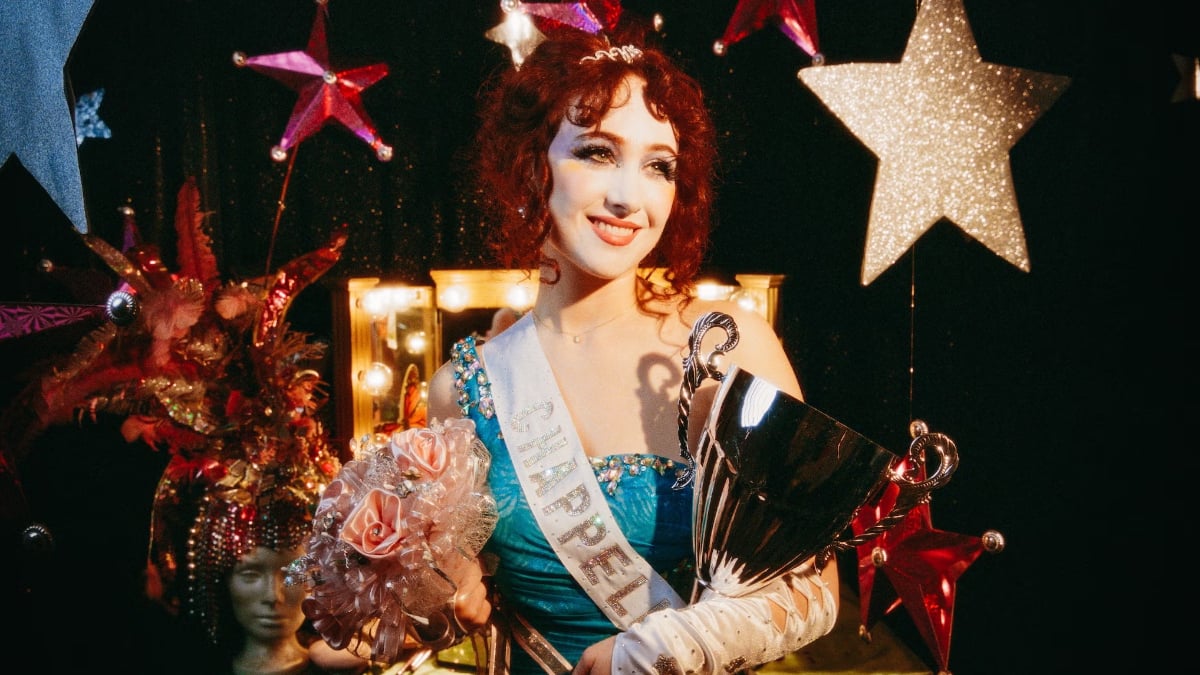Chappell Roan’s rise to the upper echelons of pop stardom has been meteoric. In less than a year, she’s gone from teaching a 500-capacity venue the “Hot to Go” choreography to breaking records for crowd size at festivals like Lollapalooza. Such fame affords its perks but it’s not without its pitfalls, something Roan has been quick to point out.
Thanks to a perfect combination of a great body of work — Roan’s debut album The Rise and Fall of a Midwest Princess is unquestionably fantastic — an opening spot on Olivia Rodrigo’s massive Guts tour, and a filmed Coachella spot that went viral, Roan has achieved a level of fame in a few months that most artists take years to reach. Not to negate Roan’s decade-long career — she’s been working at this since she was still using her birth name — but her recent surge in popularity is just that: recent.
Her current tour and festival spots emphasize this fact. Roan’s act was scheduled for mid-day slots at festivals like Coachella, Governors Ball, and Bonnaroo, which opted to move Roan’s act to a bigger venue in light of her success. At that same show, she broke down on stage and shared how overwhelmed she felt by her quickly progressing career. At the time, fan responses were overwhelmingly positive and people seemed to value her honesty about what was clearly a stressful situation. Roan’s recent comments about her fame, however, haven’t been nearly as well-received.
Why is Chappell Roan controversial?
On Aug. 19, Roan posted two videos on her TikTok account where she decried the “creepy behavior” of some of her fans. In the first video, Roan proposes a thought exercise for her fans and asks if they would yell at a “random woman on the street” or “harass her publicly.” She stresses how strange this behavior, normalized when it comes to celebrities, would be in any other context.
“Would you be offended if she says no to your time because she has her own time? Would you stalk her family? Would you follow her around? Would you try to dissect her life and bully her online? This is a lady you don’t know. And she doesn’t know you at all.”
In her second video, she explains to her fans that even if this behavior has been normalized, it’s still not welcome. “I don’t care that abuse and harassment, stalking, whatever is a normal thing to do to people who are famous or a little famous, whatever. I don’t care that it’s normal. I don’t care that this crazy type of behavior comes along with the job, the career field I’ve chosen. That does not make it okay.”
Why is this controversial?
To the average person, Roan’s videos show a singer establishing boundaries with her fans, but not everyone interpreted her comments that way. While Roan turned off comments on both videos, fans crafted their own videos and social media posts to voice their opinions which run the gamut of respecting her boundaries and decrying her as ungrateful.
When I saw Roan’s videos on my own TikTok FYP, I felt a surge of respect toward the artist for giving an opinion most people in the public eye would be afraid to say. As some were quick to point out, singers rely on fans for sales and most in her position would think twice before they risk alienating fans with big pockets. Roan’s comments raise the question of whether fans are entitled to an artist’s time after buying and listening to their music. I would hope the answer would be a resounding “no,” but the internet’s mixed reaction — some comments going as far as suggesting profiting off one’s art means the artist “signed up” for this treatment —shows how divisive our opinions on celebrity culture really are.
Internet personality Drew Afualo recently interviewed Roan on her podcast The Comment Section and shared her thoughts on Roan’s words. In the episode, the two touched on the topic of wanting to stay private in their personal lives and while Afualo clarifies their levels of fame are different, she brings up how dehumanizing it can feel when fans demand a photo at inopportune times: “I once had someone ask me for a picture when I thought my dog was dying on an operating table.” Both Roan and Afualo have no problem interacting with fans in a kind and respectful manner but take issue when fans strip them of their humanity during an encounter.
A 2022 study estimates 51% of Americans have been in a parasocial relationship so it’s unlikely celebrity culture will go away soon. People are social by default and we tend to project friendships onto people we don’t know, especially when we’re struggling with relationships in our personal lives. Personally speaking, I was most active in stan spaces (Twitter, Tumblr, the like) when I was at my most depressed. I desperately wanted an escape from my problems and celebrity culture became that escape, a sentiment I’ve seen others, like video essayist Mina Le, echo in light of the Roan discourse. Like Le, once I had worked on my mental health and started living my life the way I wanted to, I was no longer drawn to these spaces as I once was.
Growing out of that mindset helped me recognize celebrities are literally just people and should be treated as such. That’s not to say parasocial relationships are bad — this Time article cites benefits such as increasing self-confidence and reducing loneliness — but when you’re content with yourself, you don’t feel devastated when a celebrity doesn’t live up to the impossible fantasy you cultivated in your head.
Statements like Roan’s will hopefully change our current mindset regarding celebrity culture and help people realize it’s not that deep if a celebrity doesn’t want to take a selfie with you.

